Advertisement
HHS Secretary Was Warned Of 'Crisis' At Holyoke Soldiers’ Home Earlier Than Administration Said, Documents Suggest
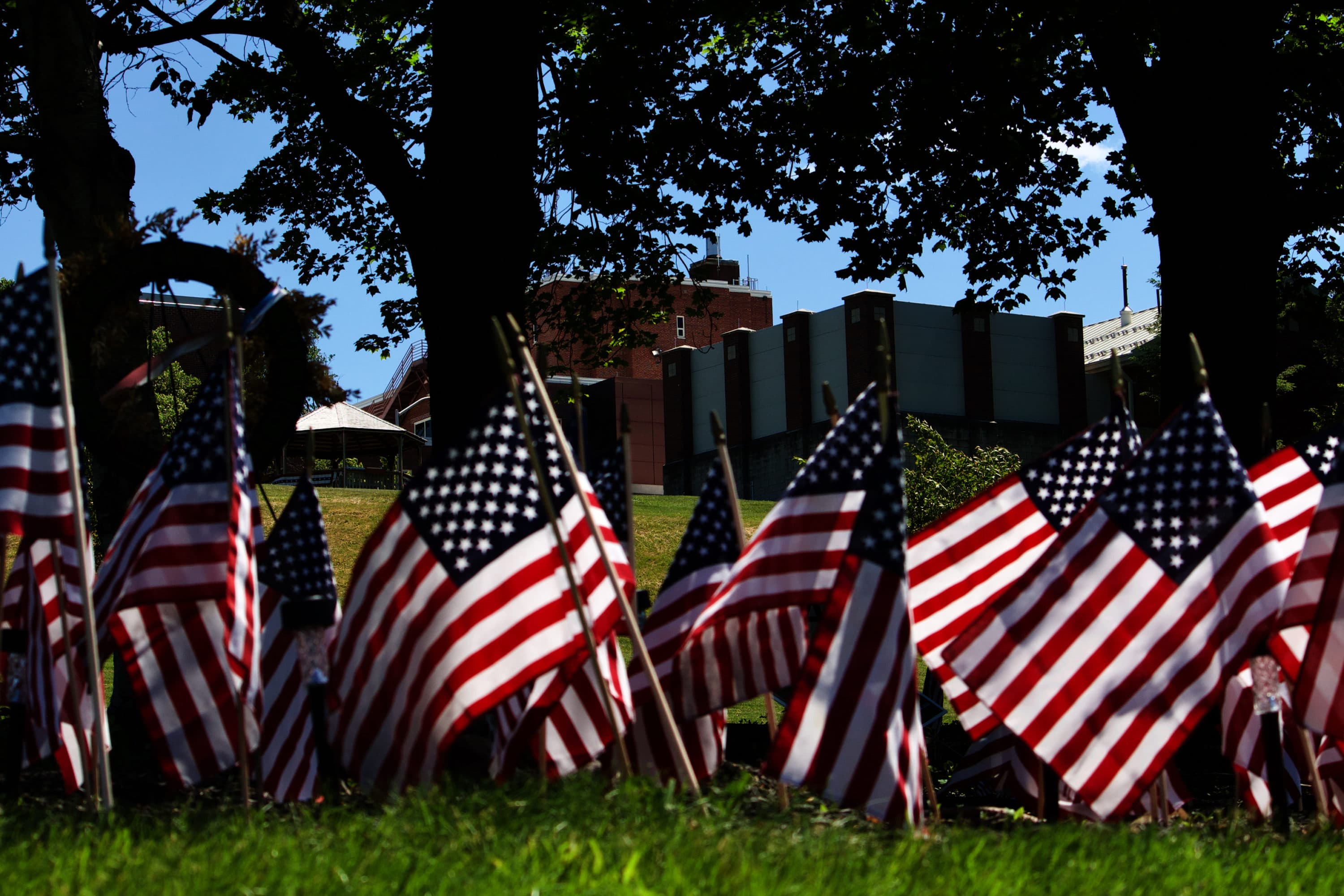
Gov. Charlie Baker has repeatedly said that he and Health and Human Services Secretary Marylou Sudders first learned about the deadly coronavirus outbreak at the Holyoke Soldiers’ Home around 9 p.m. on Sunday, March 29. But emails and phone records provided to WBUR show Sudders may have known about the sudden and catastrophic increase in cases and deaths nearly 24 hours before that time.
Friday, March 27
Brenda Rodrigues, president of SEIU Local 888, said she first learned about problems in Holyoke on Friday, March 27, when one of her local's members called her. Kwesi Ablordeppey, a certified nursing assistant at the Holyoke Soldiers’ Home, called her "basically in tears" about the situation in the state-run home for veterans.
"'There have been so many deaths,'" she recalled him saying. "He felt like he needed to tell somebody."
He asked that union leadership in Boston step in because Soldier's Home management wasn't responding to staff concerns, according to Rodrigues.
She said she told Ablordeppey to try to confirm the number of veterans who had died, and that she’d check back with him soon. After getting off the phone, she said, she turned on the news, expecting to see coverage of the veteran deaths. And when she didn’t, she recalled thinking it was strange.
This wasn’t the first time she’d heard about problems at the Soldiers' Home — emails show she and other union leaders had been trying to get management to share the home’s infection control plans, and to get employees personal protective equipment (PPE), for at least a week.
Saturday, March 28
The next correspondence she had about the matter was on Saturday evening at 6:06 p.m. Cory Bombredi, the union organizer at the home, sent her an email with the subject line "It is getting worse by the hour," and cc'd a few others from the union.
Hi Brenda,
I am sorry to reach out to you with such bad news, and on the weekend at that, but I just received word that another 2 Veterans passed away, bringing the total to 6 in less than 24 hours, and 8 within days at the Holyoke Soldiers’ Home.
I have received depressing text after text, call after call today from our membership filling me in on details. I was informed that the dying Veterans did not have enough morphine during their passing, they have to take morphine from either Veterans in Hospice, or already passed Veterans.
It is clear that management has created the most horrible situation we could imagine within the Home. My fear is that we will have no one left once this is over … One of my messages detailed that the young worker who had to place [four] Veterans that passed last night into body bags was denied some personal time because she was [too] overwhelmed with sorrow to continue her work. Instead they made a delivery of additional body bags to the units for the deaths to come.
I want to ask you to reach out to someone at a higher level as soon as you can, I’m afraid it may be too late already in the home. Is there any way you can contact Secretary Sudders over the weekend to see if there’s anything that can be done. The membership is afraid they are attempting to cover some of this up at this point.
Thank you in advance,
Cory
At 7:32 p.m. that Saturday night, Rodrigues wrote back, telling the group that she had called Sudders' cell phone and left a voicemail.
"I left a message [saying] I was concerned with events that were going on at the Soldiers’ Home and I felt like I really needed to talk to her," Rodrigues said.
A screenshot of her call history shows she made a 57 second outgoing call at 7:29 pm.
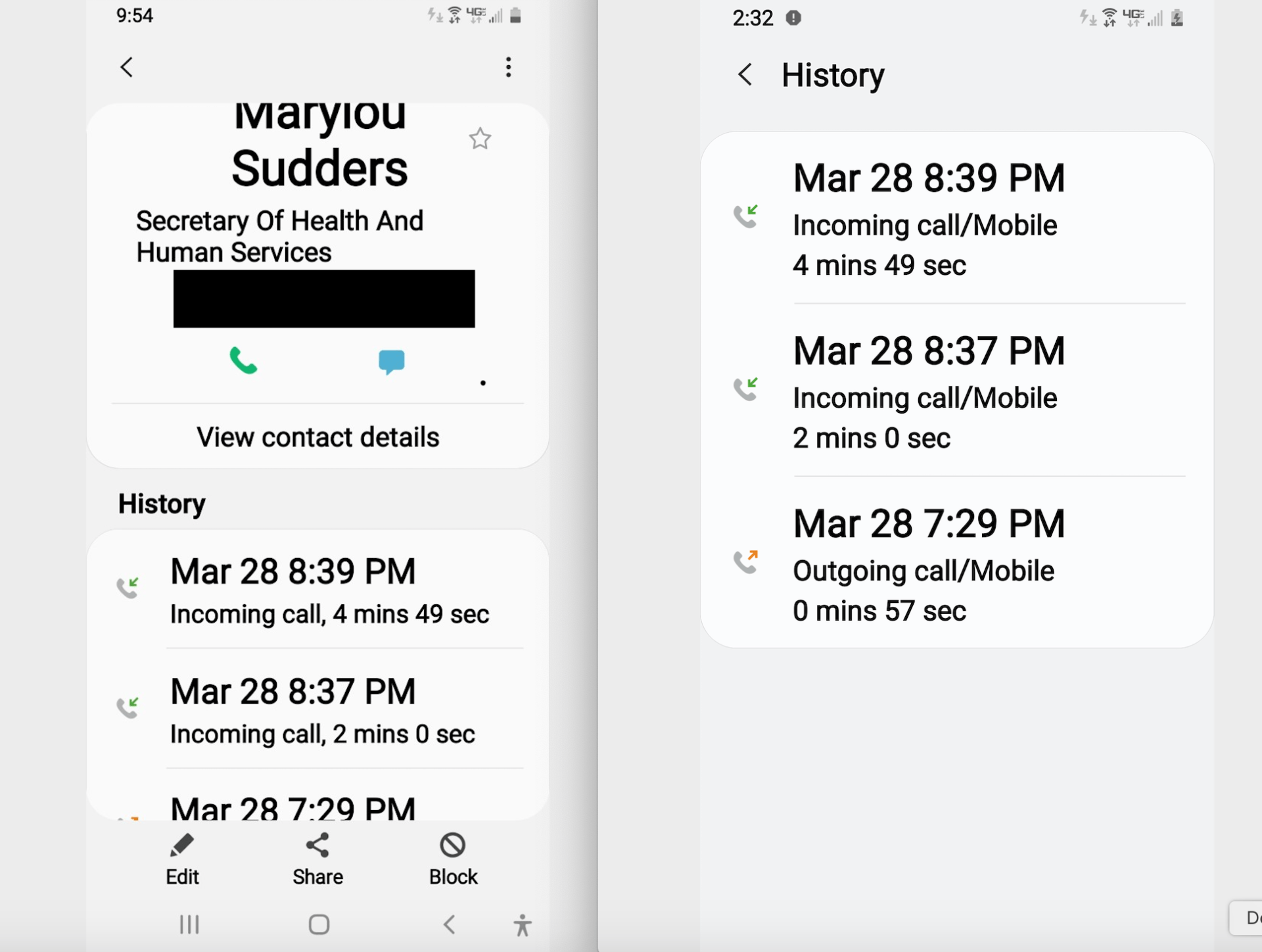
After leaving the message, Rodrigues decided to get her concerns in writing. At 8:12 p.m., she sent an email to Sudders, cc’ing Department of Veteran Services (DVS) Secretary Francisco Ureña and a few people from the union. (Leadership at the Soldiers’ Homes in Holyoke and Chelsea report to DVS, which is under the umbrella of Sudders’ Health and Human Services Department.)
"Dear Secretary Sudders, I have been informed that there is a crisis at Holyoke," Rodrigues wrote. "Our members (SEIU 888) have been trying to get [PPE] for the veterans and themselves but management has been making operations and safety for all a big problem. Safety standards have been an issue for over a week."
Rodrigues then quotes part of Bombredi’s email as an example of the concerns she and her union colleagues have been hearing from staff.
"I have great concerns over the safety for the veterans our workers protect and care for and also for the safety of our members who work at the Home. This is a crisis situation and has been ongoing for a week. We have been trying to work with the management and other unions within the home but it is pointless. PLEASE send help to this Home as we lose more lives just like Washington," she writes, referencing the deadly coronavirus outbreak at the LifeCare Center in Kirkland, Washington.
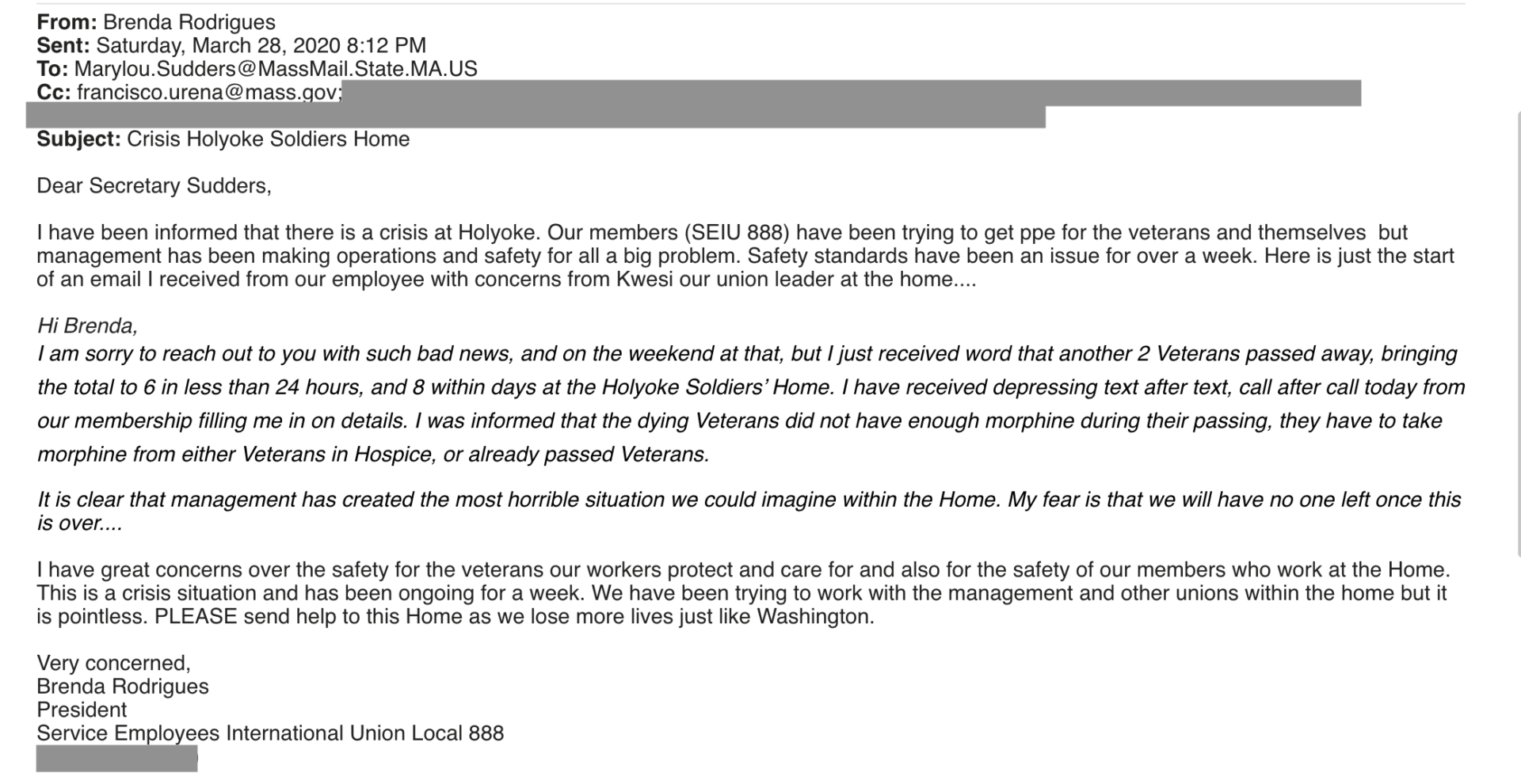
About a half hour after sending the email, Rodrigues said, Sudders called her back — the call log provided to WBUR shows an incoming call at 8:37 p.m. (WBUR has verified that the number listed on the log is a phone number for Sudders.)
The call was disconnected after two minutes, but Rodrigues said Sudders called her back immediately and they spoke for another 4 minutes and 49 seconds.
"I told her that there were multiple deaths and I felt like it was a crisis and I needed to reach out and let her know that we needed to have something done," Rodrigues said. "And she was very adamant, and repeated to me multiple times, that 'officially there was just one death.' And I said, 'well that’s not what I’m hearing.'"
Rodrigues said she interpreted Sudders’ use of the word "officially" to mean that the Soldiers’ Home had only reported one death to the state.
She next asked if Sudders received the email she’d sent about a half hour earlier, which included Bombredi’s note, and implored the secretary to read it if she’d hadn’t
"And she said, 'Brenda, what I’m telling you is there is officially only one death.' And I said, 'well what I’m telling you is there is not, and we need help.'"
Rodrigues said they spoke for a few more minutes and Sudders promised to have "boots on the ground" at the Soldiers’ Home the following day to assess the situation.
"When I hung up with her, I felt confident that something was going to happen," Rodrigues said. "I do remember distinctly feeling 'Oh, she’s listened to me. There will be somebody taking care of that tomorrow.'"
Shortly after the phone call with Sudders, Rodrigues emailed her colleagues to report the news. She told them that Sudders was adamant that there had been only one death at the Holyoke Soldier's Home, but assured them that help was on the way.
"Just got off the phone with Sudders," Rodrigues wrote on Saturday at 8:54 p.m. "There are more veterans tested but no official results yet. Sec Sudders will have boots on the ground at the home tomorrow and there will be all the necessary equipment for the veterans and the members ... I feel confident that she will make sure the proper protocol and safety will be adhered to. Please keep me posted."
Sunday, March 29
The following day, Holyoke Mayor Alex Morse followed up on a tip he got about problems at the Soldiers’ Home by calling Bennett Walsh, the superintendent of the Holyoke Soldiers’ Home. (Walsh was put on paid administrative leave on March 30.)
During that phone call, Morse said, Walsh informed him that eight veterans had died in the last week and that many more were sick.
"My takeaway from that conversation was that they hadn't taken the adequate precautions," Morse told WBUR in March. "And to be honest, there was little sense of urgency on that call."
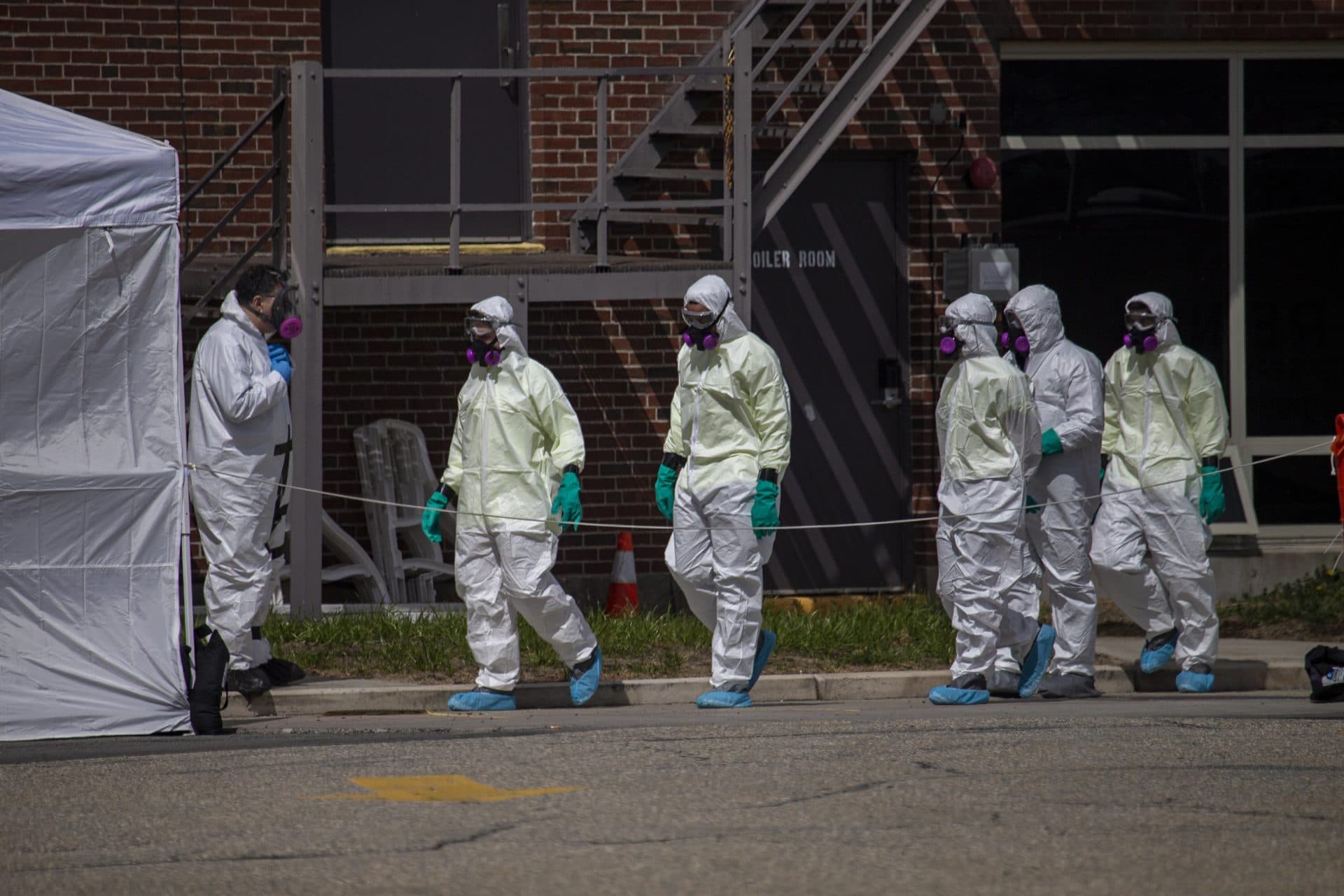
Morse said that Walsh told him,"'Well, all of these folks had underlying health conditions.'" And that answer, the mayor said, "just wasn't good enough."
Morse then "reached out to the lieutenant governor [Karyn Polito]. She got back to me right away and said, 'We're on it,'" he said.
According to a recent Boston Globe story, Polito then called Sudders with the "horrible news" about the fatal outbreak, which she described as "a punch on the gut."
But according to Rodrigues and the union, Sudders already knew there was a problem at the Soldiers’ Home.
It was "really weird because I made the call Saturday," Rodrigues said. "And I know I made the call Saturday, and I know I did an email on Saturday because I have the proof that I did it. So it seemed just weird to me."
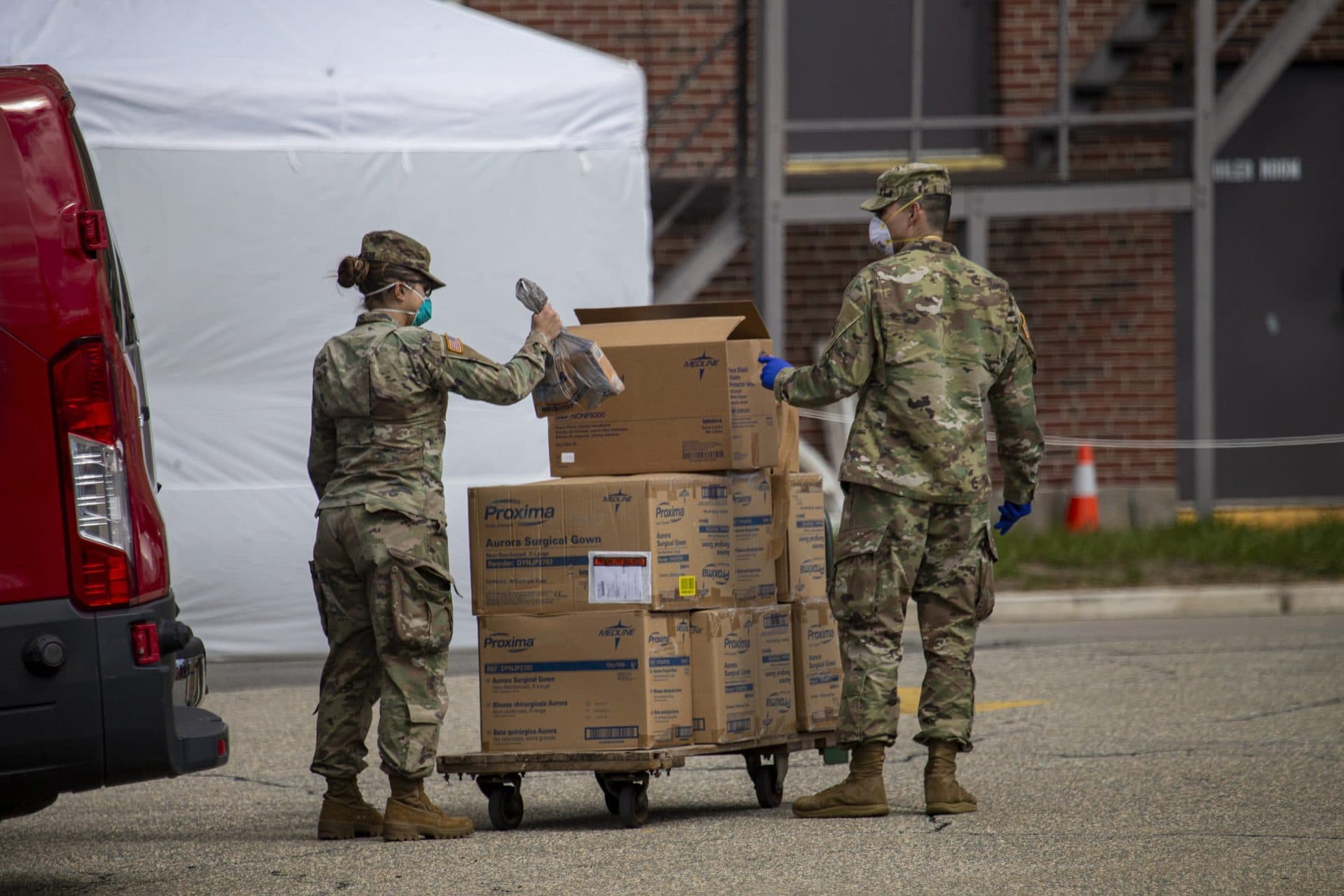
A spokeswoman for HHS did not answer multiple questions about when Sudders first learned of problems at the Holyoke Soldiers’ Home, saying only that "upon learning of the extent of the outbreak and the circumstances on the ground at the Holyoke Soldiers Home, an onsite clinical command team was immediately put in place, and has assertively responded to the emergency situation and continually making necessary changes on the ground to protect resident safety."
Another spokeswoman for Sudders referred WBUR to the same statement.
There are at least four state and federal investigations looking into the Holyoke situation, and last week, Baker said at a press conference that the one he ordered from attorney Mark Pearlstein should be completed soon.
"I want him to do the report that he believes will most completely, accurately, thoroughly and objectively speak to the who, what, why, where and when with respect to that horrible tragedy," Baker said.
Rodrigues, Bombreadi and Ablordeppy all say they've spoken with investigators working with Pearlstein.
Bombredi said he hopes the report addresses when Sudders learned about the problem.
"I’m personally insulted for our workers, the veterans and their families that [state officials] are not acknowledging that they learned about this 24 hours sooner than they did," he said. "I feel as though our original comments weren’t taken seriously."
It’s been just over 10 weeks since the story came to light and the state called in the National Guard to help stabilize the situation. To date, 76 veterans have died from the virus, and many others were infected but recovered.
"I keep looking back," Bombredi said. "I’ve asked myself the question so many times — what are they looking to gain from not telling the truth?"
This segment aired on June 11, 2020.
